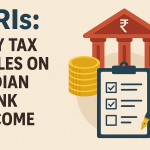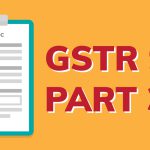Blog Post

by Madhav Joshi
Posted on April 4, 2019

GST in India turned one year old in July 2018 and as the new Tax comes out of its infancy, the Department of Revenue is stopping leniency towards non-compliance under the GST Act. Taxpayers now need to be on their toes to ensure that accurate and on-time filing of GST Return takes place as non-filing of Return would lead to a notice from the from the Investigation Wing of the GST Department.
Taxpayers with a GST registration and a GSTIN are required to file the returns GSTR 3b and GSTR 1. Even if the income of the taxpayer has not reached a taxable level, they need to complete a Nil Return Filing. Non-compliance with the tax rule would lead to notices and penalties imposed by the appropriate authorities.
Since GST is fairly new, one may inadvertently commit non-compliance due to the overlooking of some intricacies and could be served with a notice from the GST Authorities. Here are a few ways you can end up with a GST notice and how you can avoid getting it:
1) Defaulting on Filing Returns
Taxpayers who have not filed their GST Return within the time limit have received notices from Revenue authorities across the country asking them to pay the taxes due and interest as a penalty.
The GST department has also initiated efforts to make taxpayers file returns within the deadline by sending notices to non-filers through emails asking them to submit returns within 3 days of the expiry of the deadline. This is a good initiative by the department and would encourage and remind you to file your returns on time. The best and most obvious way to avoid a notice is by being diligent and meticulous in filing GST returns.
2) Inconsistency in GST Returns
GST officers are sending scrutiny notices to companies whose tax payment does not match the final sales return. Revenue authorities have recently detected underpayment of GST by about 34 percent.
Companies whose final sales return GSTR-1 did not match GSTR-2A, which is a purchase return auto-generated by the system from his seller’s return, have also received scrutiny notices. As per an analysis done by the revenue department in March, 34 percent of businesses paid Rs 34,400 crore less tax between July-December while filing the initial summary return (GSTR-3B).
It can be seen that the Revenue Department is now ready to take stern action against any mismatches in the GST Returns of businesses. Hence, it is imperative that these returns are made consistent with one another. Any efforts to dupe the authorities through underpayment will not go unnoticed and should not be attempted.
3) Verification of Pre-GST Claims
The Department of Revenue has started sending notices to taxpayers asking them to provide documents in support of transitional credit claims filed by them. Taxpayers should furnish the copy of Tran 1 return along with stock statement and copies of purchase documents.
If you receive a notice before the tax deadline, then you must make sure there is reconciliation between GSTR 1 (return for outward supplies) and tax liability in GSTR 3B before filing these returns on time.
If you get a notice for non-compliance with GST after the tax filing deadline has passed, then you must complete your filings as soon as possible to avail minimum penalty. You must also send a hard copy or soft copy of your GST returns to the appropriate GST assessing officer. This will constitute a GST compliance reply and assure the authorities that you are indeed following the GST law.

GST to Change the Face of Warehousing

Cases when ITC is not available under GST

GSTR 9C – Part II

GST Audit/Reconciliation and Certification (Form GSTR-9C)

Taxation of Indian Bank Account Income for NRIs: Key Rules and Guidelines

Taxation: History of Goods and Service Tax for India

GSTR 9C – Part III

Aten Papers & Foam IPO Day 1: Check subscription status and other details

Brookfield-Backed CleanMax Set for ₹4,000–5,000 Crore Confidential IPO

How your small pie of Tax builds the entire nation.
Comments